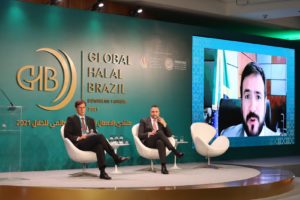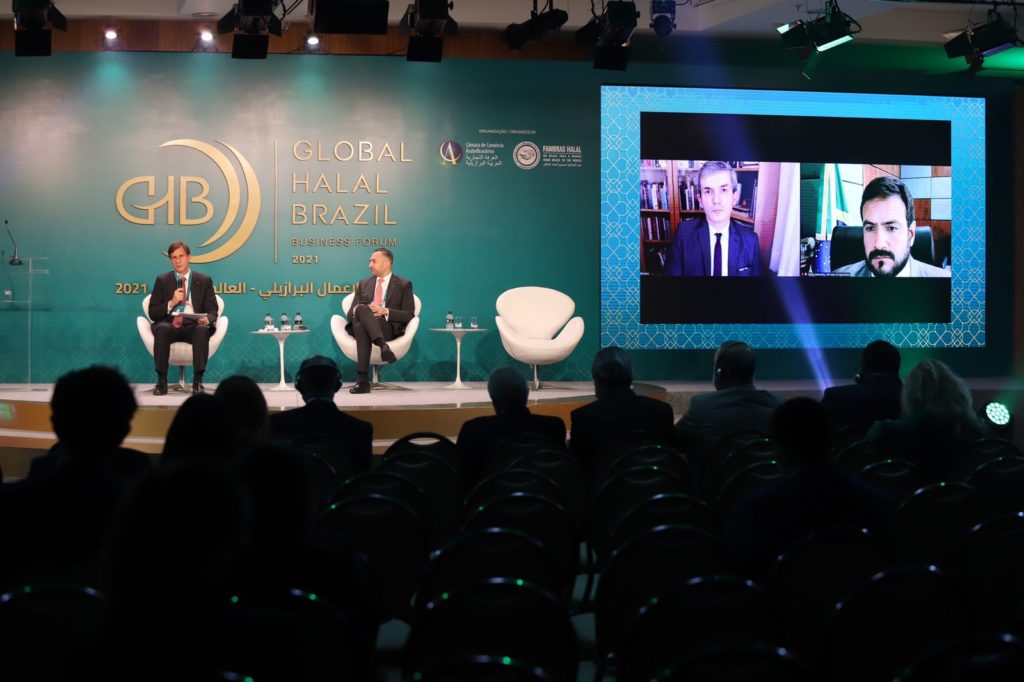São Paulo – Breaking into new markets is not enough to diversify halal exports from Brazil. So said minister Alexandre Peña Ghisleni, director of the Agribusiness Department of the Ministry of Foreign Affairs of Brazil. He participated in the Global Halal Brazil business forum that started on Monday (6). The event is held by the Arab Brazilian Chamber of Commerce (ABCC) and the Federation of Muslim Associations in Brazil (FAMBRAS Halal) with the support of Brazilian Trade and Investment Promotion Agency (Apex-Brasil).
During the panel ‘Agribusiness: Brazil and Its Leading Role in the Halal Market,’ Ghisleni stressed that clearing exports is not enough; providing the conditions for them to take place is key. “We aim to encourage the promotion of agribusiness in the more traditional sense like by participating in trade shows but also by promoting the image and integrating the private and public sector. This is a challenge we face not only inside the Ministry of Foreign Affairs but across the entire government,” he pointed out.

The minister pointed out that there is work to be done in coordination with Apex-Brasil, the Ministry of Agriculture, Livestock and Supply of Brazil, and the private sector.
Based on current data, agribusiness keeps on having a central role in leveraging exports of halal items, especially to the Organization of Islamic Cooperation (OIC) countries. “Agri represents 70% of the exports from Brazil to the OIC. Our current exports basket is that much concentrated. But there’s room to increase our market share in the Islamic countries. I have no doubts that the number of halal consumers tends to grow in the coming years,” Flávio Bettarello, deputy secretary for Trade & International Relations at the Ministry of Agriculture of Brazil, said.
Tamer Mansour, secretary-general of the ABCC, also participate. “I see the agribusiness landscape as something new after these two years of pandemic. We used to be content with Brazilian exports to the Arabs. But the pandemic has showed us that there are other opportunities and that we can add value. There’s no silver bullet, though,” Mansour said.
In this regard, the panel’s moderator, Mohamad Orra Mourad, International Relations vice president of ABCC, pointed out the purchasing power of the halal-consuming public. “Now 65% of the Islamic population is willing to pay more for an ethically made product. And non-Muslims are also consuming halal now,” Mourad said.
The forum runs till Wednesday (8) with the support of Apex-Brasil, BRF, Pantanal Trading, Portonave, and Iceport. It can be watched on the event’s website via prior registration or on the ABCC’s YouTube channel. It features translation into English and Portuguese.
Follow the complete forum coverage:
Read more about the GHB:
- Islamic market returning to pre-pandemic levels in 2021
- Brazil’s Temer: “Halal could go beyond Islamic market”
- Islamic economics education was impacted by COVID-19
- Apex-Brazil wants to take halal to small enterprises
- Ready-to-eat foods are trend in halal
- Post-pandemic world to invest in public healthcare
- Halal: Brazilian food is safe and sustainable
Translated by Guilherme Miranda




